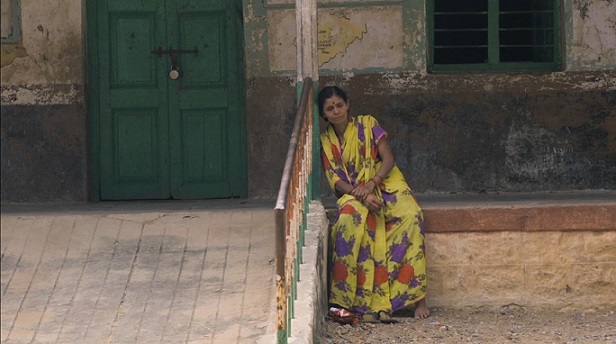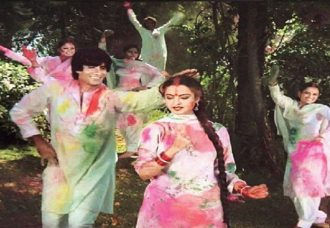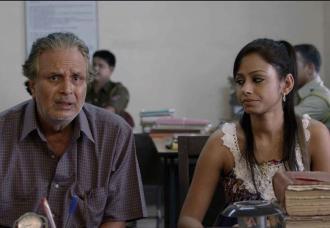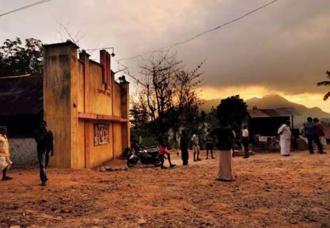Kannada’s other, in familiar parlance – art house cinema – has never really scaled up to its glorious past of the 70s when Girish Kasarvalli, B V Karanth, Girish Karnad, and their proteges and the like, ruled the roost ensuring their regionally rooted films became part of the larger national discourse.
Of course, you had another shrewd and prolific craftsman in Puttanna Kanagal whose films straddled both universes with felicity – finding the right median between box office commerce and art house aesthetics. There was a sprinkling of few others who made right noises as well every once a while during the era. That was about it.
It was after nearly 45 years since, you had a techie-turned Raam Reddy light up the Sandalwood (moniker for Kannada film industry) skyline with his impeccable 68th Locarno’s Golden Leopard winner Thithi. The pulsating pastoral comedic parody, set in Nodekoppalu village of Karnataka’s Mandya district, becoming the toast of the nation, pickling every cineaste’s discerning palate.
Of course, the tongue-in-cheek rib-tickler, fetched Raam Reddy, who honed his cinematic skill with a year’s stint at Prague Film School before he made it bold to cut his teeth with Thithi, bushel of awards from various film festivals as well. That it was a NFDC Film Bazaar Best Work in Progress product is noteworthy.
For, nearly seven years later, making similar headlines and right noises in the film festival circuit is another young, aspiring upstart’s eponymously titled Shivamma. The upstart going by the name of Jaishankar Aryar, whose surname the film’s titular figure also takes.
An automobile engineer, who switched to software in 2014, working for a US-based company, 32-year-old – engineer-turned-filmmaker Jaishankar, chucked his cushy techie job in India’s Silicon Valley – aka Bengaluru to pursue his passion.
Having gestated and germinated Shivamma during the year-long break in 2020, as the coronavirus pandemic swamped the country, which finally found fruition in 2022, Jaishankar, like his predecessors Raam Reddy, Pawan Kumar, among lakhs of engineers, steadfastly strove to chisel their ideating minds for creative cinema.
Certainly not before Shivamma, like its predecessor Raam Reddy’s Thithi, as part of NFDC Film Bazaar Work-in-Progress Lab 2022, won the Prasad Lab DI Award and Movie Buff Appreciation Award. Unlike Raam Reddy though, who was privileged having the wherewithal to hone his skill at Prague Film School, Jaishankar was not that fortutious.
With retired SI father Aryar Parameshwar and homemaker mother Bhagyavthi, Jaishankar, driven to give wings to his inner calling, fell back upon burnishing his cinematic craft through familiar short films routine, besides attending a workshop by Lucia & U Turn fame Pawan Kumar on “How to turn your ideas into Films” being the only formal tutelage before he bid bold to give vision to Shivamma.
That his cinematic idiom and visual narrative technique have been deeply influenced by Iranian cinema of Abbas Kiarostami and Asghar Farhadi, is evident in the way Shivamma unfolds before you. Further, that Jaishankar had the insightful potential to craft aesthetic cinema was evinced with his scintillating short Lacchavva which was part of potpourri of seven ensemble shorts presented by Rishab Shetty as Katha Sangama, as ode to late Puttanna Kanagal, incidentally being producer of Shivamma.
If Lacchavva saw a mother from her rural hamlet moving to metropolis City of Bengaluru, to fend for her son, and whose overzealousness to surprise him with his favourite Dharwad Peda, lose her bearings in the hustle and bustle of unfamiliar city, Shivamma, though stays firmly rooted in its rural setting itself where unfolds a saga of monumental proportions.
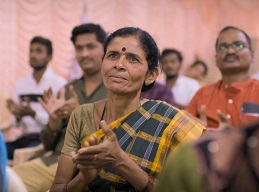 A paralytic afflicted husband, a wastrel of a son, and college going daughter of marriageable age deeply in love with a boy from another caste, Shivamma has her hands full designing ways to bring that extra bit to feed the family.
A paralytic afflicted husband, a wastrel of a son, and college going daughter of marriageable age deeply in love with a boy from another caste, Shivamma has her hands full designing ways to bring that extra bit to feed the family.
Doughty, determined and driven by this singular objective a gusty Shivamma sets herself in mission mode resolute in her resolve with all the gumption in her command to earn that extra income for the family being its sheet anchor and sole bread winner.
Well aware that her cook’s job at local Anganwadi school would not suffice to set aside the sum required for daughter Jyothi’s impending betrothal and marriage, given stringent cultural and traditions prevalent, the 46-year-old ingenuous intrepid woman turns entrepreneur and “Interpreter of Maladies” as Jhumpa Lahiri would put it.
One cannot fault Shivamma given the impoverishment she and her ilk face in the village. The debt she is deeply into, her money-making pyramid scheming not leashing enough into the loop, she falls for the fantastical sales pitch of owner of Nuform taking dealership of the company’s health boosting supplement products BFresh & Nuracle.
Swayed and smitten by the man’s promotional promises and propaganda how retailing the products could turn one into a crorepati Shivamma too adopts wily guiles to woo the impressionable lot in the village around her with her own sales pitch dispensing gndespite fully conversant about the inefficacy of the products.
Warned repeatedly and nearly walloped by her son Shivu to stop fooling people, while a hapless daughter Jyothi watches as a mute bystander, Shivamma justifies her deceit and descent to such trade gimmicks to one of her friends.
“We are stuck in this rusting old villages routine. Clean up and work our ass off like a donkey for a meagre Rs 200. If we do Nuracle business earnings from it in two years will make us crorepatis.” As the manager had goaded the participants at the sales meet, she too resolves herself to her companion stating “I will do it.”
Despite the reality she suffers ignominy and insults time and again from almost all around her in the village, the film speaks of how the lives of the likes of Shivamma is such that they are left with no choice but only resolute and resilient in their drive to better their lives and their family.
Her only constant and truly non complaining companion being the grinder with which she prepares the drink to lull here prospective customers to buy the product for their own greater good and well-being virtually stating BFresh & Nuracle are Ambrosias that will cure all their ailments.
Succinctly capturing the trials and tribulations is the superlative cinematography Vikas Urs with his framing, slow pans, long takes, and extreme closeups, to enhance the enormity of Shivamma’s situation and psyche, as also hold an evocative and reflective mirror into the milieu and circumstances she is boxed in.
Some of the scenes from the film that allegorise Shivamma’s situation as also Jaishankar’s own insightful study of real-life encounters, include her son asking her to push the non-starting bike harder, her mouthing the company’s manager’s forceful words: I will do it., her standing mutely as she is berated for taking loans from the teachers, she berating her daughter for the folly of falling for a boy of different caste, besides of course the best one of the girl and the boy exchanging messages seated opposite to one another at the village bus stand.
Equally eruditely edited by Jaishankar in company with Chandan, Shivamma filmed in the minimalist traditions turns out tour-de-force on how abject economic situations in rural hinterlands ensnare people like Shivamma into chasing the aspirational chimera in the belief they are doing good for the family and resolutely brave the battles not of their own making.
As the Busan jury notes: “We appreciated the originality and intensity with which the director was able to tell this very contemporary story. Here documentary and fiction meet in an organic and spirited way of making cinema. The generosity of the actors and the scenes create a closeness with this universal story that takes place in an Indian village.”
Indeed, shot entirely on location in Yarehanchinala village, Kuknur taluk, of Koppal district, Shivamma belonging to the realistic tradition and genre of socially relevant filmmaking provides hope that in Jaishankar Aryar Kannada cinema has found a new harbinger and beacon of hope for creative and meaningful cinema to come which it is woefully starved at present.




